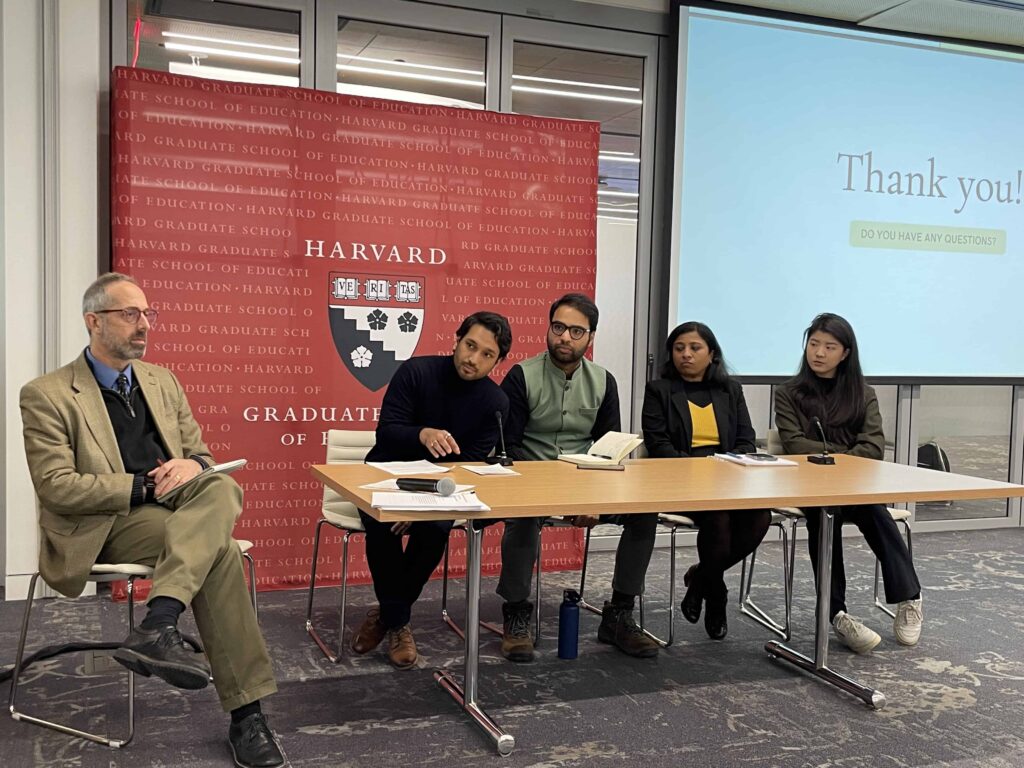Government leaders and education experts from around the world came together for Harvard Graduate School of Education’s annual Global Education Conference.
The conference was convened on Jan. 20 by Professor Fernando Reimers as a culmination of his course on education policy analysis and research in comparative perspective.
Reimers is the Ford Foundation Professor of Practice in International Education, Harvard’s Director of the Global Education Initiative and a member of Creative’s Global Advisory Board.
Graduate students from Reimers’ class examined the impact of the pandemic on education in different countries and designed policies to further advance education through a local lens. At the conference, students shared their findings and policies developed in consultation with government leaders from those countries, including Finland, Brazil, Colombia, South Africa, India, Indonesia, Mexico, Uruguay and Paraguay.
Their work was then discussed at the conference by thought and practice leaders in the field, including representatives from Creative, UNICEF, the Inter-American Development Bank, World Education, the Stanford Research Institute, LASPAU, and Appian Education Ventures, who provided thoughtful feedback. A book with this work will be published later this spring.
Cory Heyman, Creative’s Education for Development Vice President, joined the conference as a discussant, and welcomed the opportunity to engage students in a reflective deep learning exercise.
“Students today are tomorrow’s education leaders. Many will take on educational leadership roles and connecting theory and practice is key for creating strong practitioners,” says Heyman.
Mashhood Alan Bhat, a student who attended the conference, said that having experts like Heyman comment on their policy papers helped bring new insight to their work and will inform future versions of their analysis.
“The conference was an excellent opportunity to learn more about how education systems are recovering from the pandemic and what more needs to be done to make these systems resilient to future shocks,” said Bhat.

The future of the global education movement
The practical model proposed by Reimers in his course brings relevance to education and provides an opportunity for students to build global citizenship skills, while learning how education policies are designed in practice. It also brings expert advice to policymakers based on the latest evidence of what works.
“Universities have a role to play in bringing about solutions to some of the world’s most pressing social challenges,” stressed Reimers, who is a true believer in the power of connecting service to society and practical teaching and research.
Lily Neyestani-Hailu, Reimer’s former student who is now at UNESCO, recounted the global impact caused by the pandemic in the education system.
“Everything changed overnight. The unthinkable happened: Education without schools. We have seen the impact, especially in the most disadvantaged students,” she says.
Neyestani-Hailu spoke about the opportunity to rethink education and said that we need a new social contract to repair past injustices. She highlighted global efforts advanced by the United Nations, including The Futures of Education series and the Transforming Education Summitt — two efforts to reimagine how knowledge and learning can reshape the future.
Both Ms. Neyestani-Hailu and Professor Reimers agreed that the pandemic brought new relevance to Sustainable Development Goal (SDG) 4 – “ensure inclusive and equitable quality education and promote lifelong learning opportunities for all.”

